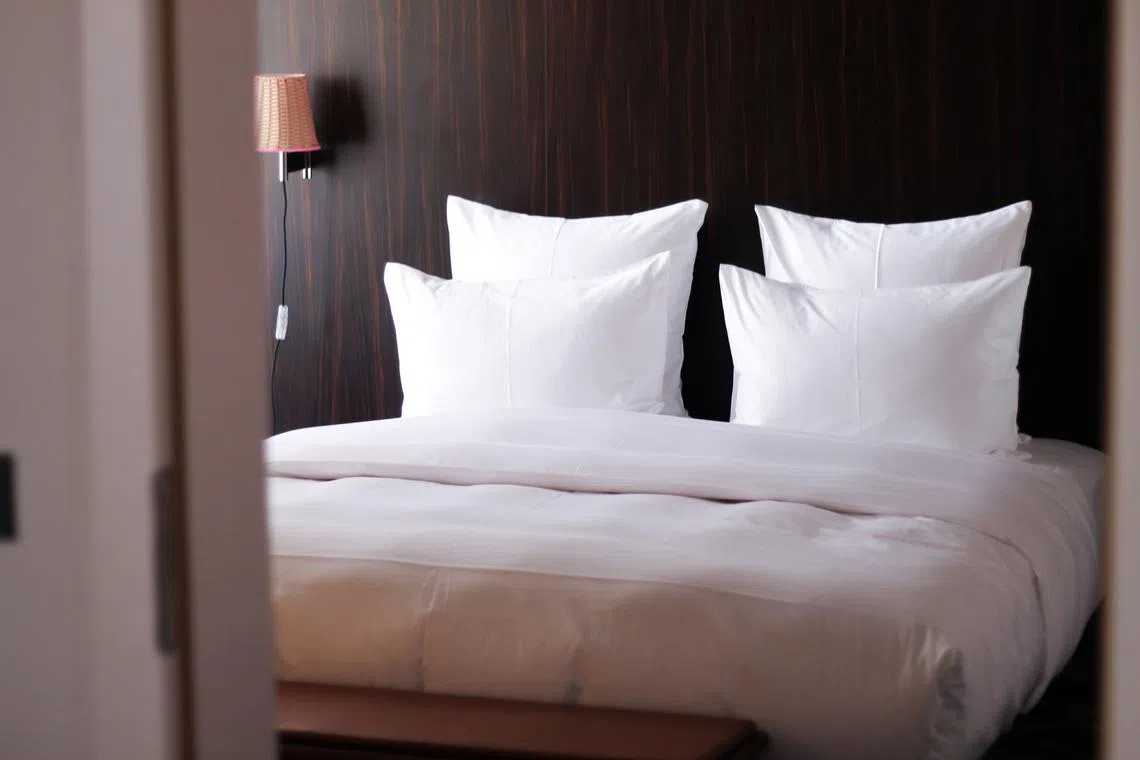World’s best hotel to be crowned in 2023 in new list
Sign up now: Get ST's newsletters delivered to your inbox

The inaugural list of the World’s 50 Best Hotels will be released at a ceremony in September.
PHOTO: UNSPLASH
Follow topic:
LONDON – The World’s 50 Best lists are famous for turning restaurants into household names. Take Noma, which went from a little-known Copenhagen restaurant to international phenomenon after it was crowned No. 1 in the world in 2010.
Now the company that has become a kingmaker for the globe’s top restaurants and bars is preparing to do the same for hotels.
The inaugural list of the World’s 50 Best Hotels will be released at a ceremony in September. As usual, the company will do its best to drive the hype: The winners will be revealed during a live countdown, culminating in the announcement of the No. 1 destination.
Britain-based William Reed Business Media, which operates the World’s 50 Best rankings, sees an opportunity to fill a gap in the market.
“The hotel awards business has been quite locked up with advertisers/big business predominantly being the deciders of who are the winners,” says Ms Yolanda Edwards, one of the new award’s nine unpaid regional “academy chairs” and the former creative director of Conde Nast Traveler US.
“To have an independent award list that actually surfaces real favourites can not only bring to light incredible properties that might otherwise go unnoticed, it can also surface best practices that might have incredible impact on larger hospitality groups.”
Various companies publish star ratings or awards for hotels, such as Forbes and Conde Nast.
Michelin includes hotels in its guides, which were originally produced to encourage road trips, and in 2021 expanded its hotel programme. Countries or regions maintain standards for what they consider to be a one-star to five-star hotel.
None of them, arguably, singularly focus the public’s attention quite like a global rankings list that determines the best offering in the world.
And that raises a question: How can you determine that one property is better than all of the others, subjectively victorious over hotels Nos. 2, 3 and 4?
The awards will be based on votes from 580 jurors, overseen by the academy chairs located around the world; the voters have not yet been selected and will be anonymous.
There are no criteria for inclusion in the World’s 50 Best hotel list. A 200-year-old countryside mansion can rank right next to a six-month-old-beach retreat. In addition to the main list, there will also be awards for certain categories, like best beach resort.
Unlike the group’s other “50 Best” lists, which actually go up to 100, the debut hotels list will stop at 50.
Voters will be asked to consider all aspects of the lodging experience, from first contact with staff members to dining and drinking experiences, and even check out.
Mr Mark Sansom, the company’s director of content, sees the opportunity to highlight a broad range of properties; he points out that the places highlighted in the 50 Best Bars list range from dives to high-end hotel lounges.
The voting pool for the 50 Best hotel list will be comprised of 50 per cent journalists, 30 per cent hotel operators and 20 per cent “seasoned luxury travellers” – i.e., those who use concierge services and luxury travel agents, Mr Sansom says.
Each will vote for seven hotels, lodges and inns anywhere in the world that the person has self-certified they have stayed at.
Its chief rival in the food rankings game, Michelin, prides itself on sending anonymous reviewers to eat multiple times at restaurants to make an independent judgment about consistency and quality.
In the past, 50 Best has been criticised for allowing voters to accept free meals – with the potential, presumably, to affect their judgment – or who might be biased in favour of their friends or business partners in the industry.
That possibility is even more acute for hotels; it is not unusual for writers to be given free, or heavily discounted, deluxe rooms in exchange for coverage.
The alternative option, however, would be only including voters with the means to pay for rooms, a circumstance that would make for a very small, very homogeneous voting pool.
In making the rules, 50 Best has decided that votes will count even if panellists received complimentary rooms, discounted media rates or purchased stays with hotel loyalty programme points, Mr Sansom says.
He says experienced travellers will not be swayed by gratis accommodations.
“Complimentary nights misses the integrity of professionals in the voting body,” he adds.
Absent from this year’s list will be any establishments in Russia.
In February 2022, 50 Best announced they were moving their restaurant awards ceremony from Moscow to London, in response to Russia’s invasion of Ukraine. No Russian restaurants appeared on the 2022 restaurants list.
“For the same reasons that we didn’t feature Russia-based restaurants or bars, we will not be featuring Russian hotels. That would tacitly be encouraging tourism,” Mr Sansom says.
When the list is announced in September – the event’s location has not yet been determined – it is worth watching to see whether hotels experience the same immediate increase in business as seen by restaurants.
In 2013, after El Cellar de Can Roca in Girona, Spain, was named best in the world, the restaurant reported receiving 2 million booking requests.
When Noma was first named World’s Best Restaurant in 2010, chef-owner Rene Redzepi said that with the number of requests for bookings, they could have filled their reservations for 15 years. The restaurant just announced its closing at the end of 2024.
“We hope to be able to do the same for the hotel to be announced as No. 1,” Mr Sansom says. “And indeed wish them as much good fortune as Noma has experienced through its various guises.” Bloomberg

